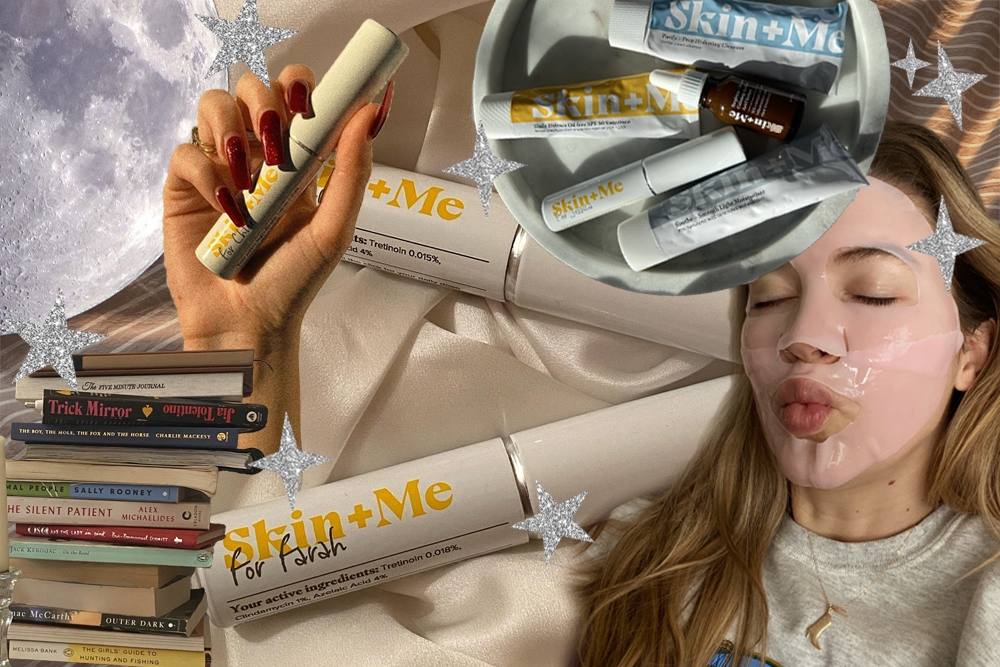Melasma 101

Like and share the article here:
Myth Buster: Is Fragrance in Skincare Bad?
How do you feel when you slather on some scented skin cream? We bet you feel pretty good. A product with fragrance can evoke a change of mood in an instant – from joy to nostalgia, our sense of smell is intrinsically linked to our emotions.
Not only are nose-pleasing products often perceived as more luxurious, but fragrance can also do the handy job of masking the scent of other, less appealing ingredients. Win, win right? Well, it’s a little more complicated than that.
Skin + Me spoke to Consultant Dermatologist, Dr Malvina Cunningham about fragrance in your products, skin sensitivities and easy ways to navigate the sweet-smelling (but potentially triggering) maze that is scented skincare.
Should I Avoid Fragrance In Skincare?
Skin + Me: Let’s start from the product development stage – why might fragrance be added to a beauty product?
Dr Malvina: Fragrance can be natural (like essential oils) or synthetic (chemical) and is used to change the smell of a product. Without fragrance, many cosmetic products would simply smell unpleasant.
Fragrance can be found in all cosmetic products – from soaps to creams, mascaras and toothpaste. It can even be found in ‘unscented’ products. Occasionally it’s not even on the ingredients list, for instance if it’s added to the product for a different function such as an emulsifier or preservative.
Skin + Me: Many of the chemicals in fragrances are sensitising, which means that they have the potential to cause an allergy. From a Dermatologist’s viewpoint, what are the potential issues to be aware of when it comes to fragrance in products?
Dr Malvina: Allergic contact dermatitis is the main problem and is fairly common. It’s estimated as affecting approximately one percent of the population although the exact numbers are likely higher due to the tendency of bias in these types of studies.
Fragrances can also cause irritation of the skin and this is known as irritant contact dermatitis. This can make your skin more sensitive to sunlight and low level irritation can lead to skin hyperpigmentation.
Skin: Me: What are your three top tips for sensitive skin types when it comes to products containing fragrance?
Dr Malvina: First, I recommend completely avoiding fragranced products in patients with a confirmed fragrance allergy. But that can be really difficult to do. People with sensitive skin particularly with conditions such as rosacea and definitely eczema, should also avoid fragranced products. This is because of their higher risk of contact allergy but also increased irritation and flare of the condition.
For everyone else, there isn’t a specific need to avoid fragrances all together. However, there are certain ingredients that are highly sensitising with a higher rate of contact allergy and it makes sense to avoid these.
Secondly, if you are sensitised to fragrance make sure to go fragrance-free. This can be really tricky as it’s so abundant. Make sure to check the ingredients list in full. Occasionally you will need to go onto the product website or even contact the manufacturer as sometimes not all ingredients are fully listed. Be mindful that your exposure to fragrance may also come from other sources like your partner, doctor, dentist or hairdresser.
Finally, when looking at the ingredients list, take note of alternative names for fragrance such as ‘parfum’ or ‘essential oils’. Natural doesn’t mean safe. There are plenty of natural ingredients that are highly sensitising – one example is linalool, a naturally occurring terpene found in a wide variety of flowers and plants. As a highly sensitising ingredient, we’re seeing many cases of contact allergy to linalool at present.
Fragrance and Skin Sensitivity with Dr Jason Thomson
Skin: Me: What is sensitive skin? Can you tell us more about the link between skin sensitivity and fragrance?
Dr Jason Thomson: Skin sensitivity now has an official definition meaning the presence of an unpleasant sensation which can be anything from stinging to burning, pain, itch or tingling that happens in response to a trigger that we wouldn’t normally expect to elicit such symptoms. The skin usually appears normal or may be slightly red but importantly the abnormal sensation cannot be explained by a visible skin condition.
This is different to secondary sensitivity which can happen as a result of an underlying skin condition such as eczema, rosacea, acne or an allergy.
A number of causes have been linked including a defective skin barrier and increase in small nerve fibres within the skin that transmit sensitivity and an exaggerated immune response that may react abnormally to common triggers.
Skin sensitivity is definitely more common in women. It can be difficult to tell if it’s sensitivity at play but if you find your skin is reactive (meaning you experience stinging, burning, itching or redness), or you react easily to cosmetic fragrance and toiletries or to changes in temperature and environment, you are likely to have sensitive skin.
The Bottom Line
Fragrance in skincare can be a nice way to elevate your routine, but it can be tricky to navigate. If you have sensitive skin or a skin condition, we recommend doing your research before introducing a new product to your routine, and opting for fragrance-free options to minimise irritation and keep your skin happy.
New to Skin + Me? Click here to start your healthier, happier skin consultation.
Medical facts checked by Consultant Dermatologist, Dr Malvina Cunningham



